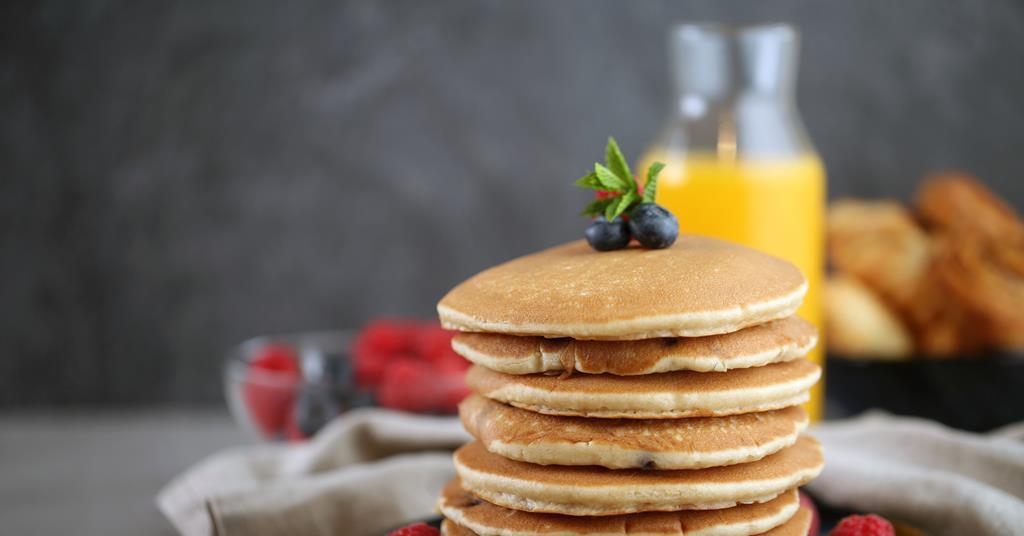
Bakery manufacturers in Northern Ireland are being given help in reducing sugar and salt content of their pancakes through newly published guidance from the Food Standards Agency (FSA).
The Northern Irish arm of the FSA partnered with the College of Agriculture, Food and Rural Enterprise (CAFRE) to launch new pancake reformulation technical guidance as part of its Making Food Better Programme. This supports food businesses in the region to make the food environment healthier through reducing calories, saturated fat, sugar, and salt in the products they make, sell, or serve, reducing portion size, providing nutritional information, and delivering responsible promotions.
“Last year in partnership with CAFRE we launched guidance on ice-cream reformulation which was very well received,” commented Daniel Sproule, FSA senior nutrition policy advisor in Northern Ireland. “Businesses embraced the opportunity to alter their recipes which enhanced consumer choice and promoted positive dietary changes.”
Sproule noted that this year, the programme had focussed on pancakes given their popularity in Northern Ireland [Mintel 2022 report, Bread and Baked Goods, Ireland]. “We know that reformulation in this category has the potential to reduce the intake of calories sugar and salt in the diet of NI consumers,” he added.
Dr Emanuele Armaforte, senior technologist at CAFRE’s Loughry campus near Cookstown, revealed how they had carried out a sampling programme of pre-packed pancakes sold in retail outlets across Northern Ireland to determine portion sizes and nutritional composition. This found that there are two pancake offerings available in terms of size: a standard pancake (41g) and a large pancake (84g), with the average sugar content for pancakes sampled 15.04g of sugar per 100g. “Our consumer analysis also indicated that two standard sized (41g) pancakes was considered to be a portion,” he said.
The technical role of ingredients – flour, raising agents, buttermilk, fats, salt, sugar and egg – was then considered. Using a control recipe, the team then experimented with modifications and substituted ingredients to mimic the functionality of the original ingredients. “We successfully created a new recipe with reduced sugar and salt content and taste tested it with consumers to make sure it met expectations. It was a winner,” expressed Armaforte.
According to data shared in the guidance, the reformulated pancake recipe helped take sugar content from 11% to 4.8% by using oligofructose (derived from chicory root) and invert sugar (a mixture of glucose and fructose). It also replaced baking powder with low sodium baking powder – which contains potassium bicarbonate instead of sodium bicarbonate – resulting in a drop of salt content from 1.29g to 0.94g per 100g. Fibre had also been increased almost four-fold to 6.1g per 100g, while the overall calorie count was cut by 13kcal per 100g.
Reformulation support for Northern Irish food businesses is available via Invest NI and CAFRE.
